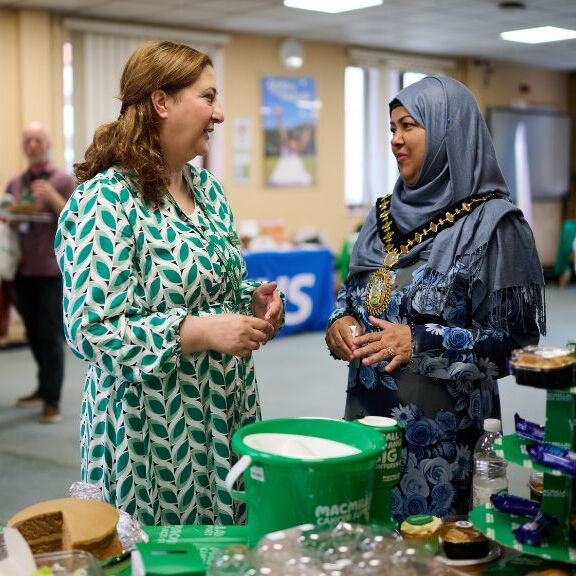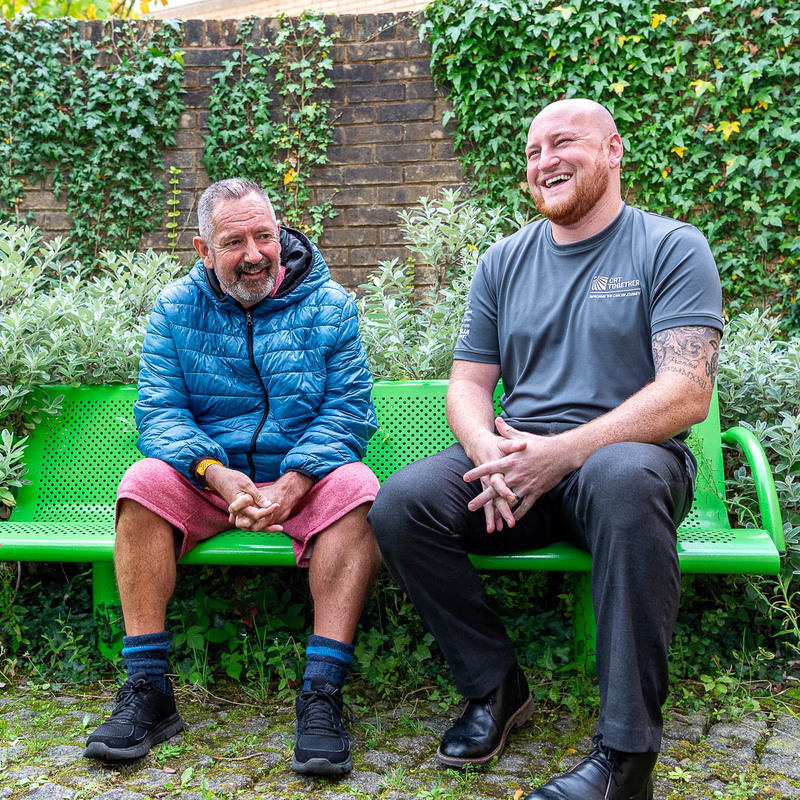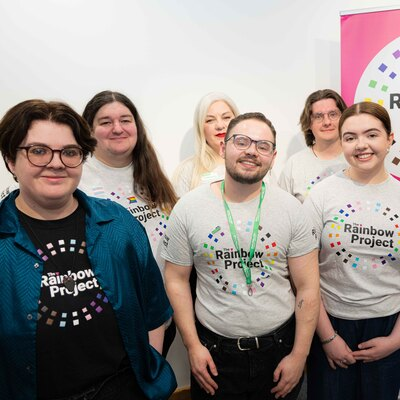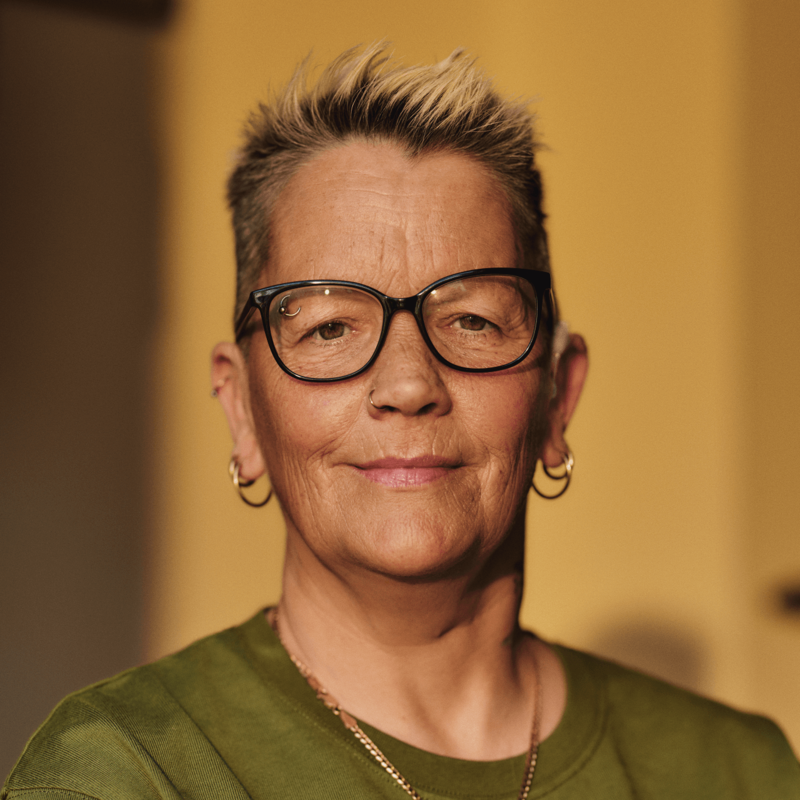
National Inclusion Week at Macmillan
What is National Inclusion Week?
-
What is National Inclusion Week?National Inclusion Week is dedicated to highlighting and celebrating inclusion in the workplace. It was founded by Inclusive Employers in 2013.
-
When is National Inclusion Week?The week runs from 15 - 21 September 2025.
-
Is there a theme for National Inclusion Week this year?This year the theme of National Inclusion Week is 'Now is the Time'. The message emphasises the importance of inclusion, urgency, resilience, and the need to push forward. With a focus on practical steps that make inclusion sustainable.
-
Why does National Inclusion Week matter to Macmillan?National Inclusion Week matters to Macmillan because it reinforces our commitment to making cancer care fairer and more inclusive for everyone. We recognise that people’s experiences of cancer can differ based on who they are or where they live, and are working to reduce these inequalities by building a workforce that reflects the communities we serve and by embedding equity, diversity, and inclusion into everything we do.
Equity Diversity and Inclusion at Macmillan
Cancer doesn't discriminate and neither can we.
For us to have the most impact in our work, it's essential that everyone sees a part of themselves in Macmillan and that they can relate to us - from our colleagues, our Professionals and our volunteers, to our supporters and the people we support. We aim to reflect and represent the communities we serve in everything we do to support everyone living with cancer.
We're committed to making Macmillan more equitable, diverse and inclusive. We're currently updating our EDI strategy to build on the important work we’ve done over the last 4 years and are listening to colleagues from across the organisation to inform our decisions.
Visit our careers website to read more about how we are building a representative and inclusive organisation.
Our strategy
A record number of people in the UK are living with cancer but there are unacceptable differences in people’s experiences of diagnosis, treatment, and care. Some people with cancer are having worse experiences simply because of who they are or where they live.
Everyone diagnosed with cancer across the UK should be receiving the best possible care and it is our mission to make that a reality.
This is the driving force behind our new strategy, which aims to reach everyone, particularly those in marginalised communities, reduce health inequities and the variation in cancer treatment and care experienced across the UK and support those with cancer and other long term conditions.
We need our workforce to be reflective of the communities we help and are committed to making Macmillan a more equitable, diverse and inclusive workplace and charity.
To find out more about the our open strategy, visit our Transforming Macmillan Together page.
Partnerships with Macmillan
Our employee networks
Macmillan wants to ensure that all employees feel heard and have a safe space to connect with others.
We currently have 8 employee networks. All are led by a Macmillan colleague and sponsored by a member of the Executive Leadership team.
The networks are an opportunity to:
- share learning opportunities
- connect with colleagues across the organisation
- discuss opportunities and ideas to help Macmillan become more equitable, diverse and inclusive
- share information on support for colleagues
- invite external organisations to give presentations and discussions
- discuss topics and issues relevant to the network
- offer support to colleagues.
Macmillan employee networks:
-
Disabled employeesThe disabled employees network is for disabled colleagues or those with long-term health conditions (physical and/or mental health).
-
Employees with a lived experience of cancerThis Network is for all colleagues who have or have had a cancer diagnosis. The Network is a safe space for colleagues diagnosed with Cancer to speak freely about their personal diagnosis and experience.
-
Gender equalityThe gender equality network is for any Macmillan employee interested in seeing gender equality at Macmillan. The network hosts regular discussions and meetings to discuss topics related to gender inclusivity.
-
Lesbian, Gay, Bisexual, Transgender, Queer, Intersex, Asexual + (LGBTQIA+)The LGBTQIA+ network is for colleagues that identify as members of the lesbian, gay, bisexual, transgender, queer and questioning, intersex, asexual, plus community. The policy covers everything from recruitment to transitioning or coming out as trans, gender non-conforming, or non-binary at work.
-
Mental HealthThe mental health network is for any Macmillan employee interested in advancing mental health support and understanding. The network is open to those with a lived experience, but also those who are interested in listening and learning from those with a lived experienced.
-
NeurodivergentThe neurodivergent network aims to create a safe community for neurodivergent colleagues. They champion neuro-inclusion for employees, healthcare professionals, volunteers and people living with cancer.
-
REaCH network (Race, Ethnicity and Cultural Heritage)The REaCH network for colleagues who are Black, Asian or another minority ethnic background.
-
Working families and carersThe Working Families and Carers' employee network advocates for working parents and carers. They drive change across the organisation to ensure Macmillan is a fair and equitable place to work.
Members of the network support one another, share experiences, and raise issues that are important to them. -
Other support groupsBesides to our colleague networks, Macmillan has several support groups led by colleagues. The groups offer a safe, non-judgemental space for people to come together to give and get support.
Macmillan employees are encouraged to join a support group, or even start a new one. All of the groups are supported by Macmillan's EDI team.
Supporting employers and employees
Employers
In addition to our work to make Macmillan a more inclusive workplace, we also want to help employers to be more inclusive.
Macmillan at Work provides information, training and resources for employers to help them support staff affected by cancer.
Employees and self-employed
If you have cancer you may be worried about work. You may be worried about talking to your employer about your cancer. Or you may be worried about how cancer may affect you if you're self-employed or run your own business.
Visit our money and work page to discover how Macmillan can help you.
Work for Macmillan
At Macmillan you'll find talented people working together to help those living with cancer. From fundraising to technology, cancer support operations to campaigns, whatever role you are in the work you do will have a direct impact on people's lives.
Find out more about careers at Macmillan.
Stories from people affected by cancer
About our information
This blog was written by Sanjeet Shergill and Kerstin Felton. Sanjeet and Kerstin are digital content editors at Macmillan.
Learn more about our Digital Content Editors and how we produce our cancer information.








